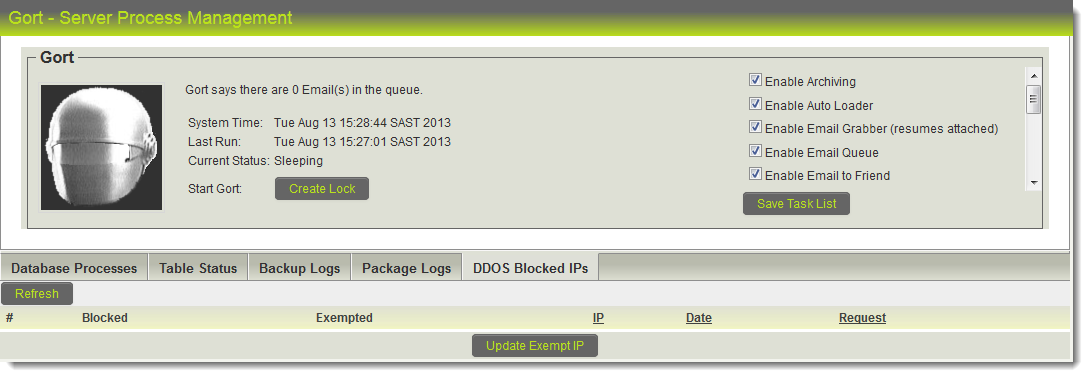Difference between revisions of "DDOS Blocked IPs"
From SmartWiki
| (4 intermediate revisions by the same user not shown) | |||
| Line 3: | Line 3: | ||
SmartSimple's countermeasures against a DDOS attack include an automated blocking of requests from IP addresses that impede SmartSimple's performance with saturation-level persistent requests. | SmartSimple's countermeasures against a DDOS attack include an automated blocking of requests from IP addresses that impede SmartSimple's performance with saturation-level persistent requests. | ||
| − | Exemptions can be created on a per-IP address basis from | + | Exemptions can be created on a per-IP address basis from the DDOS Blocked IPs tab on the GORT page. See [[What Is Gort?]] for additional information. |
[[Image:GORTDDOStab.png|link=]] | [[Image:GORTDDOStab.png|link=]] | ||
| + | |||
| + | Note: Clients on shared (Software as a Service) servers do not have access to Gort. | ||
| + | Gort on SaaS servers is managed by SmartSimple. | ||
| + | |||
| + | ==See Also== | ||
| + | * [[What Is Gort?]] | ||
[[Category:Security]] | [[Category:Security]] | ||
Latest revision as of 13:17, 19 September 2013
The acronym DDOS stands for "Distributed Denial-of-Service" and refers to a type of cyberattack on a given server or servers.
SmartSimple's countermeasures against a DDOS attack include an automated blocking of requests from IP addresses that impede SmartSimple's performance with saturation-level persistent requests.
Exemptions can be created on a per-IP address basis from the DDOS Blocked IPs tab on the GORT page. See What Is Gort? for additional information.
Note: Clients on shared (Software as a Service) servers do not have access to Gort. Gort on SaaS servers is managed by SmartSimple.
